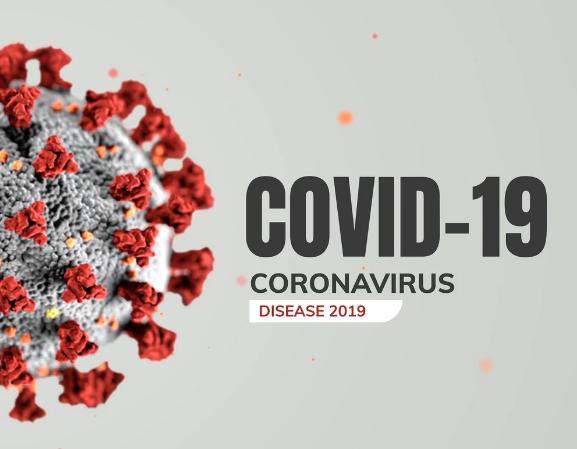The deadly Coronavirus pandemic has infected over a million people across the world, engaging researchers debating over its reinfection and reactivation probabilities. Reinfection is a possibility that the COVID-19 virus can re-attack those who have been cured. While Reactivation is the re-evolution of the virus in areas where it has been wiped off. Since the coronavirus is still evolving, it has shown signs of re-infection in some cases reported in South Korea. This has left researchers and public health authorities’ study about the re-infection scare as it is still under study how the human immune system responds to SARS-CoV-2 virus.
This leaves questions unanswered, whether or not people, especially of the high-risk group like Senior Citizens, High BP, Cancer, Asthma, Diabetes, Obesity, Cardiovascular diseases, chronic Liver infection or Renal dialysis, develop a long-term immunity after recovering from COVID-19.
In most of the Coronavirus re-infection cases, medical professionals have come into a conclusion that the virus has re-infected twice in instances where the immune function was suppressed, or a person belonging to the high-risk category has come on contact with COVID-19 positive case who was asymptomatic.
COVID –19 Reinfection Causes
Medical experts believe that the reinfection probability will depend on how an individual’s immune system reacts to the virus. Some Coronavirus positive patients may experience a reoccurrence because of their weaker immunity and other underlying health conditions. The incubation period of COVID-19 is 14 days, which in some cases might be extended, as studies point out that some patients might still be carrying the virus strain for longer than the expected 14-day period.
Identifying the Coronavirus Reinfection Risk
Early research studies from Doctors suggest that the possible cause of the Coronavirus re-infection occurrence is damage caused to the lymphatic organs, or T-lymphocytes, the cells which play a vital role to maintain a healthy immune system.
Our immune system is a group of dedicated cells and tissues fighting off infectious agents like viruses or bacteria at the event of an invasion. At the time of a virus or a bacteria attack, our immunity system triggers off a defensive response which may include fever or sneezes and the build-up of proteins, called antibodies. Antibodies help to fight off the infection. Be cautious that this process is always not that effective, but for minor infections like common colds, our immunity contains the virus, mitigating the probable risks, and helps our body return to health.
Developing Adaptive Immune Response to Fight COVID-19
If you have been sick with known symptoms, your immune system will act against it and as a resultant, you will develop antibodies for a specific pathogen. As a consequence, it is a lesser probability that you will be sick with the same disease again. Your antibodies have identified the pathogen and will deactivate it if it attempts to make you sick.
An adaptive immune response is another way to make the immune cells produce targeted antibodies that surround the T cells and can attack only the infected cells, called the cellular response.
Developing antibodies may take a considerable amount of time delaying the body’s response to fight COVID-19. Studies believe that it may take around 10 days for our bodies to start developing antibodies that can target the coronavirus pandemic with sickest patients building the strongest immune response.
Does Immunity have a Memory?
Do you know our immunity system also works on memory, remembering some of the infectious/ bacterial or viral attacks while forgetting the others? Like for instance, measles is a highly memorable condition where one shot of vaccination gives life-long immunity. However, some conditions may be forgettable by our immune system, like RSV (respiratory syncytial virus), attacking all age groups, especially children multiple times in the winter.
Coronavirus or Sars-CoV-2 is an evolving pandemic and the medical fraternity still does not know how long the immunity system can fight against it. Through considerable clue is available from another human Coronavirus, like the MERS-CoV, and the SARS-CoV.
Slowing down the Coronavirus Spread
Medical professionals around the world believe that the global Coronavirus re-infection risk will be minimal. The best way to curb the spread of the deadly pandemic especially in the case of vulnerable people is to follow strict adherence to social distancing, wearing face masks, and maintaining hand wash hygiene.
Immunity holds the key to fight off the deadly virus. One’s immune defenses will also affect how the virus can re-infect or re-originate. Understanding immunity and strengthening it could help ease lockdown measures. This will enable policy-makers and medical professionals which cohort of people can slow down the Coronavirus spread.
Building Immunity
It becomes even more important now, how do we build our immunity to fight off not just Coronavirus but other deadly seasonal changes to maintain a healthy lifestyle. Making minor changes in our daily routine will ensure we not only get all the essential nourishment but our blood sugar and weight are also kept in check.
Follow these stay at home steps which build your immunity levels-
- Handwashing: Coronavirus survival on surfaces becomes minimal if it is killed by proper handwashing for at least 20 seconds with soap or using hand sanitizer containing more than 60% alcohol.
- Stress management: Stress hampers drastically your immunity levels. Make a schedule while work from home, which will help to control your response to stress.
- Meditation and Exercise: Exercise, Yoga and Meditation go a long way to build your immunity stronger. Those who exercise tend to suffer fewer infections than those who do not, let your children join exercise and yoga practices with you.
- Adequate Sleep: Sleep is an important component in building immunity levels. Make sure you get 8 hours of rest to rejuvenate.
- Balanced Meals: Heathy diet not only helps you build immunity but is also great for weight loss. Make sure to cut the sugar, have safe meals and opt for more fibre food in your everyday meals.
Contracting a Digital Infectious Specialist
To mitigate your risk of the COVID-19 spread, consider consulting a dietitian or an infectious disease specialist on the Gigadocs app. With lockdown and social distancing norms to follow, unlock the power of telemedicine technology, book an infectious disease specialist or dietitians around you, on the Gigadocs app,
Never miss a follow–up appointment. Get notified on your next doctor appointment on the Gigadocs app. Leverage the power of intelligent practice management software and store your medical records, track your vitals like pulse rate, steps walked, and share them with your digital doctor securely on the Gigadocs platform on a real-time basis.
To download Gigadocs app-
IOS App – apple.co/2W2iG4V
Andriod App – bit.ly/33AQoRC
To know more e-mail, at info@gigadocs.com
Seek your digital doctor and dietary support from trained health care professionals on the Gigadocs app.




